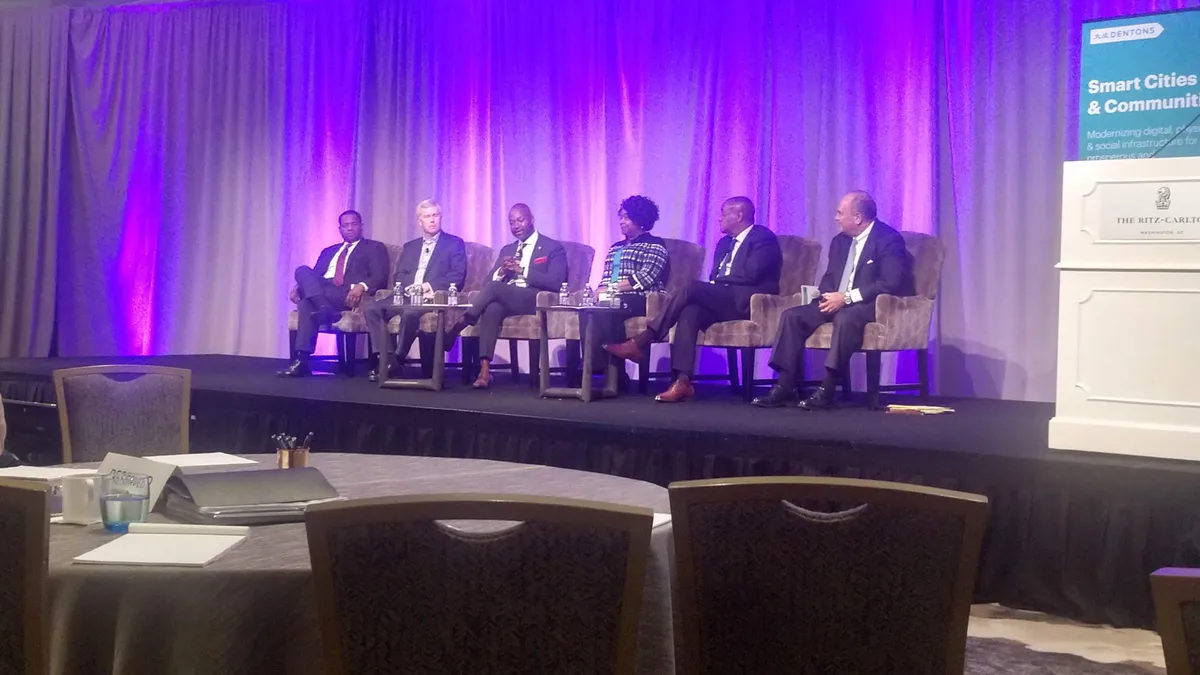WASHINGTON — City leaders must consider smart city initiatives as part of their long-term masterplans and budgets, instead of seeking short-term policy wins, said panelists during the Dentons Smart Cities and Communities Summit in Washington, DC.
The panelists said it can also be helpful to have a committee dedicated to smart city efforts, such as the Smart and Sustainable Cities Committee on New Orleans City Council that helps engage residents and keep work going even as elected offices change hands.
If done properly, long-term initiatives can help some of the systemic problems that can affect cities, especially if there is strong community buy-in. "If smart cities have a unique commitment to equity, then you can start solving those manifestations of poverty that people love to pick at and point at, whether it's crime, whether it's access to good jobs, whether it's being able to participate," New Orleans City Council Member Jason Williams said.
Own the work, not the results
Former Atlanta City Council President Ceasar Mitchell said that shift to long-term thinking means that elected leaders "own the work, but we don't have to own the results," meaning they must see initiatives as part of their legacy.
As such, Mitchell urged patience from elected officials, who typically operate in short-term windows of opportunity between elections and in that time are always determined to show what they are doing in the immediate term.
"Some of these solutions will take five or 10 years to even manifest themselves, and then another 10 years to even show results," he said. “That long-term thinking is incredibly important to have, but it's also very difficult, not just for elected officials who operate and live on two- or four-year terms, but even the private sector that still has a time limit to its leadership as well.”
Indeed, Williams said that the best place for elected officials to be when formulating such policies and initiatives is in the "sweet spot between denial and fanciful solutions." He said that the most important thing that can be done in the short-term is "articulating what smart cities is to folks and how it can be helpful to them."
Community buy-in is essential
Mitchell said that clear communication with residents helps build trust, and then can make them more receptive to changes that are being made.
"The most important thing is the attitude," he said. "Does the community feel comfortable and trust what's happening down at city hall and really is the private sector willing to bring their ideas and invest their time and resources in creating a partnership with city government to make some of these issues a reality?"
Even in less urbanized parts of the country, elected officials need to start thinking differently in all kinds of policy areas, but most notably in transportation, which should be about far more than single-occupancy vehicles.
"The days of county governments being a bunch of pot-bellied men eating steaks and building roads should be over,” Harris County, TX Commissioner Rodney Ellis said.












